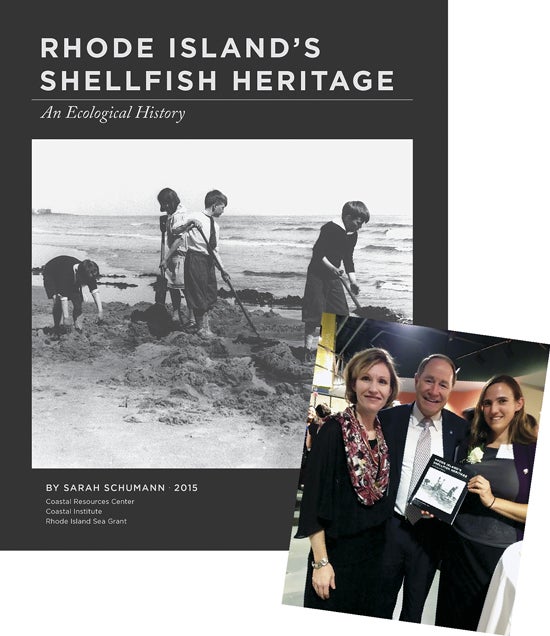Shellfish, Past and Future

The book Rhode Island’s Shellfish: An Ecological History captures the way shellfish, from the iconic quahog to the humble periwinkle, have been an integral part of Rhode Island’s past and present. And it has done something else: won praise as an innovative way of using the humanities to inform public policy, and the future of shellfish management.
Written by Sarah Schumann, the compendium examines the significance of shellfish from pre-Colonial days to today in terms of sustenance, employment, recreation, ecological importance, and artistic inspiration. Numerous shellfishermen, growers, shellfishing families, dealers, artists, scientists, and others contributedstories and photographs.
This fall, the Rhode Island Council for the Humanities honored Schumann, together with the Coastal Institute at URI, Rhode Island Sea Grant and the Coastal Resources Center at the URI Graduate School of Oceanography, with an Innovation in the Humanities Award.
The book is a “powerful use of the humanities to connect cross-sector stakeholders including the R.I. Department of Environmental Management and Coastal Resources Management Council, URI, and Roger Williams University, in the process of designing Rhode Island’s Shellfish Management Plan,” remarked Elizabeth Francis, executive director of the Rhode Island Council for the Humanities. “The honorees not only looked at shellfish as an economic, environmental, and culinary resource for our state. They also brought to light the enduring importance of shellfish as a cultural resource, interwoven with Rhode Island’s identity and history.”
To request a copy of the free book, contact rhodeislandseagrant@gmail.com or call 401.874.6800.
 Home
Home Browse
Browse Close
Close Events
Events Maps
Maps Email
Email Brightspace
Brightspace eCampus
eCampus


